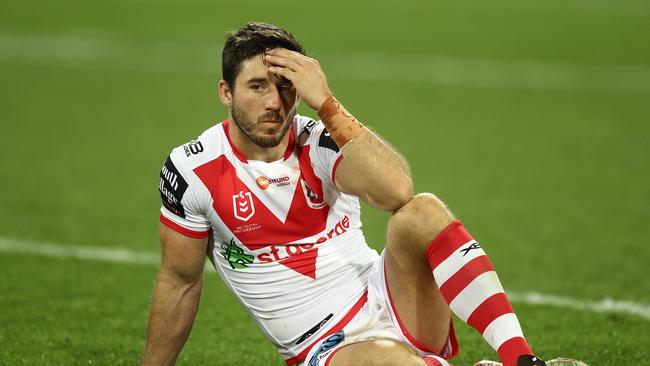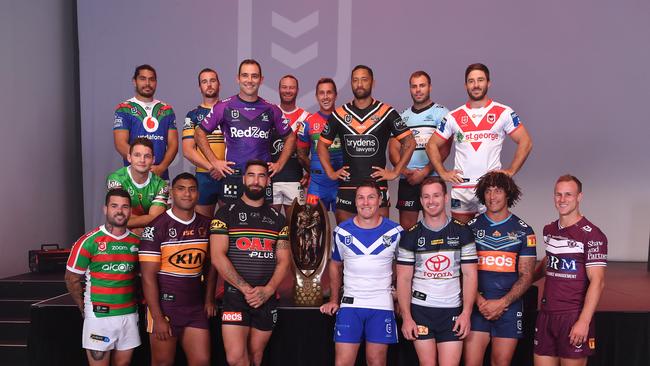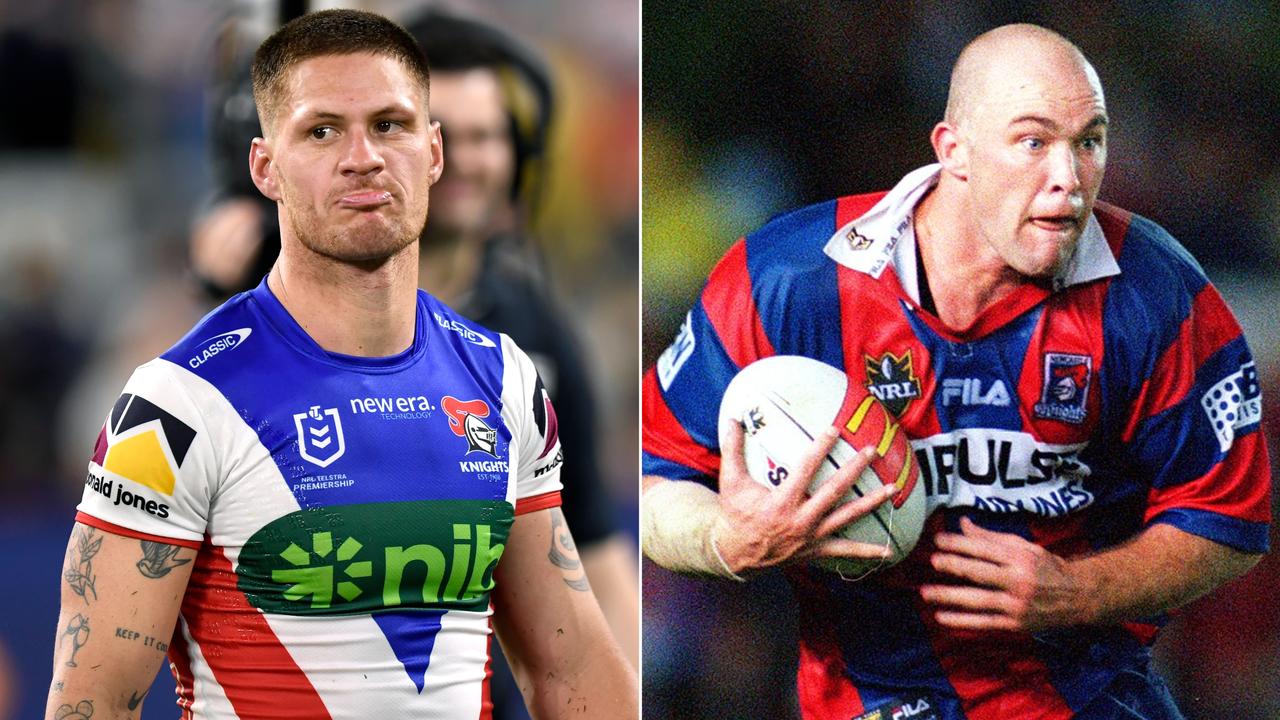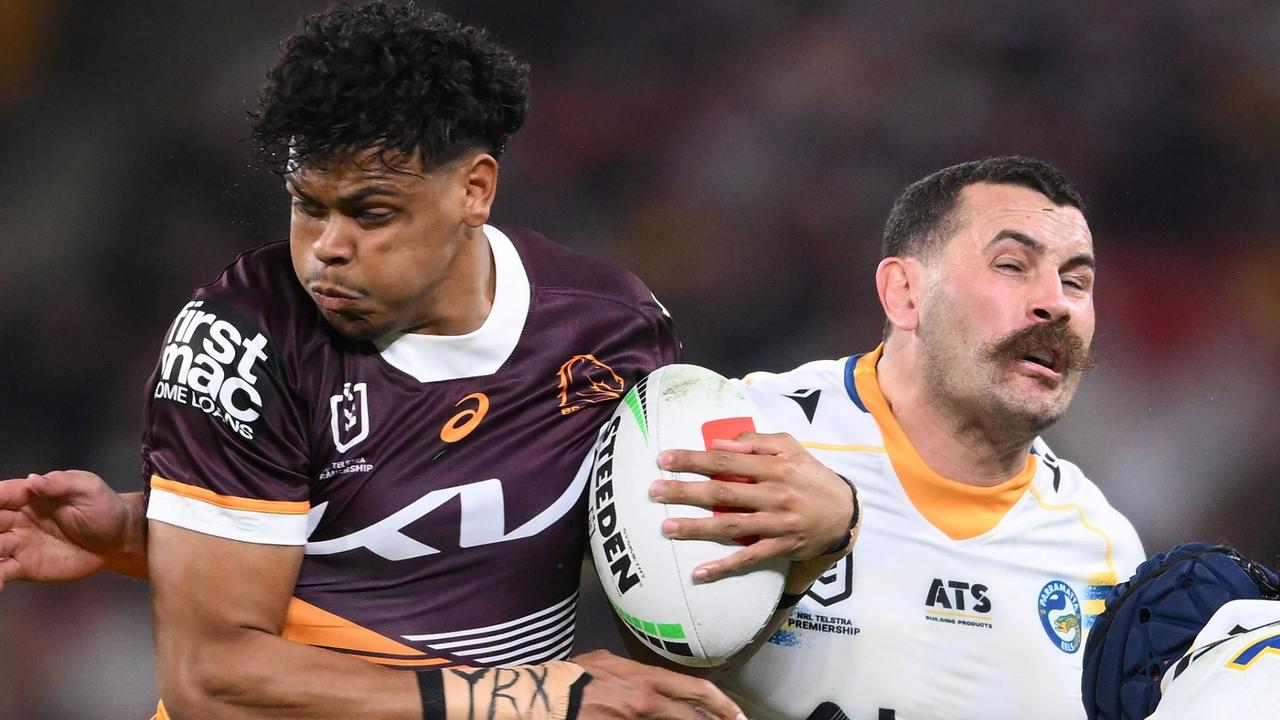How overpaid players and greedy clubs have forced the NRL to its knees amid COVID—19 outbreak
The greed of NRL clubs and their eagerness to overpay players has nearly crippled the game financially - and the coronavirus has just exposed the truth, writes DARREN LOCKYER.

NRL
Don't miss out on the headlines from NRL. Followed categories will be added to My News.
The coronavirus pandemic has triggered shockwaves around the world and it has given rugby league’s bosses a chilling insight into just how financially vulnerable the NRL is to an unforeseen crisis.
In recent years, we have seen an explosion in the code’s finances.
The NRL celebrated a record $1.8 billion broadcast deal in 2018. Salaries skyrocketed. NRL players enjoyed $1 million contracts. Clubs screamed for more cash, seemingly oblivious to the need to invest for a rainy day.
Now the COVID-19 tidal wave has hit the game, leaving a trail of destruction, the ramifications of which will require some strong and courageous decisions to be made for the sake of rugby league’s future.
This event will force the game to recalibrate its finances and how we allocate that money, how we deliver cash reserves, how we insulate clubs and the level to which we pay the players.
Watch the 2020 NRL Telstra Premiership on KAYO. Every game of every round LIVE & Ad-Break Free during play. New to Kayo? Get your 14-day free trial & start streaming instantly >

In recent years, the players association has become a more robust body in the fight for player wages and benefits. They do a good job fighting for their members, but the coronavirus ordeal is a reality check for everybody in rugby league.
Reducing player salaries is, in my opinion, important to the health of the code moving forward.
If it means NRL players will have to take a slight haircut and recalibrate wages to ensure clubs are financially viable, so be it.
If all the cash reserves the NRL has are eaten up by the coronavirus pandemic, like most businesses, they will need a concise, long-term strategy to rebuild.
We could be looking at a 15 per cent reduction in player salaries, and possibly more.
The salary cap this year is $9.9 million, so factoring in a 15 per cent reduction, a payment ceiling of around $8.5 million in 2021 would be reasonable.
To put that in context, the $1 million earners would come back to the $850,000 mark and the guys earning $700,000 a season would be scaled back to around $595,000.
It’s still a great salary at a time when many Australians are losing jobs.
FOOTY TIPS! Join Australia’s best footy tipping competition for your chance to win big. Add our experts to your league and join now at TIPS.COM.AU.

When the NRL secured their $1.8 billion windfall from the last broadcast deal, it took some time to work out what the appropriate salary cap would be – then Ben Hunt’s $6 million deal with the Dragons in 2018 blew the market open and inflated it beyond belief.
Also remember the next broadcast deal in 2023 will struggle to attract a $2 billion payday as people’s habits are changing in the way they consume content.
I can understand the RLPA fighting for minimum wage because that is prudent to cater for the needs of professional NRL players at the lower end, but the salaries of the top end pretty much doubled overnight.
We also need to be prudent with salaries being paid for emerging or developing talent. We are seeing young guys offered huge money based on potential, some before they have even made their NRL debut.
As an ex-player, I understand it would hurt the current group to have their salaries clipped, but I’m sure there are many players who have friends and family doing it tougher than them.
It’s a big-picture mindset now. If we want a strong financial game, if we want to invest in grassroots and find ways to rebuild the NRL brand, we will have to cut costs across the game collectively until the financial pie can grow again.

As for whether 16 teams in the NRL is too many, this catastrophe may have implications for the composition of the premiership.
There was talk of 17 teams but the notion of expansion should be shelved until we can navigate this crisis.
Adding more clubs now doesn’t make sense. If anything, we could pressure-test a reduction with a focus of quality content over quantity.
Hopefully in time we can recoup the lost revenue, but if we’re playing before empty stadiums until October, or the game is suspended, and the financial losses are significant, we could lose a couple of clubs.
The NRL is trying to encourage clubs to be more self-sustainable, but the Sydney-based teams in particular are still so reliant on the annual $13 million handouts from the governing body.
We might see a 12 or 14-team competition down the track which can streamline finances for the code.
Sometimes it’s like a shocking car crash. Everything gets forensically analysed and, in the fallout, the experts look at what could have been done better to prevent another disaster.
The silver lining from this episode is that rugby league’s bosses can assess the fallout and implement measures to prevent the code being exposed to this degree ever again.
Originally published as How overpaid players and greedy clubs have forced the NRL to its knees amid COVID—19 outbreak


